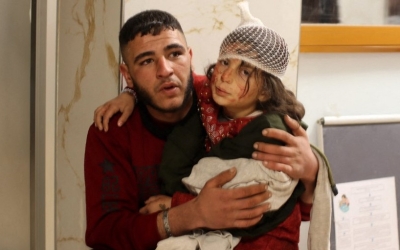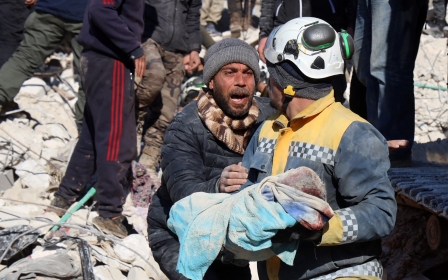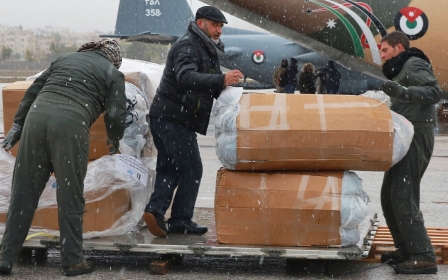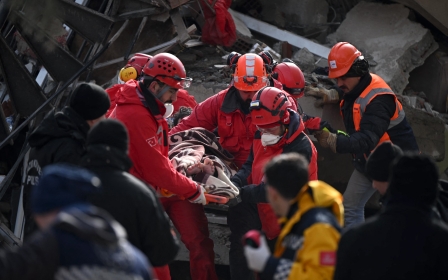Turkey earthquake: Aid not reaching northwest Syria as border guards affected
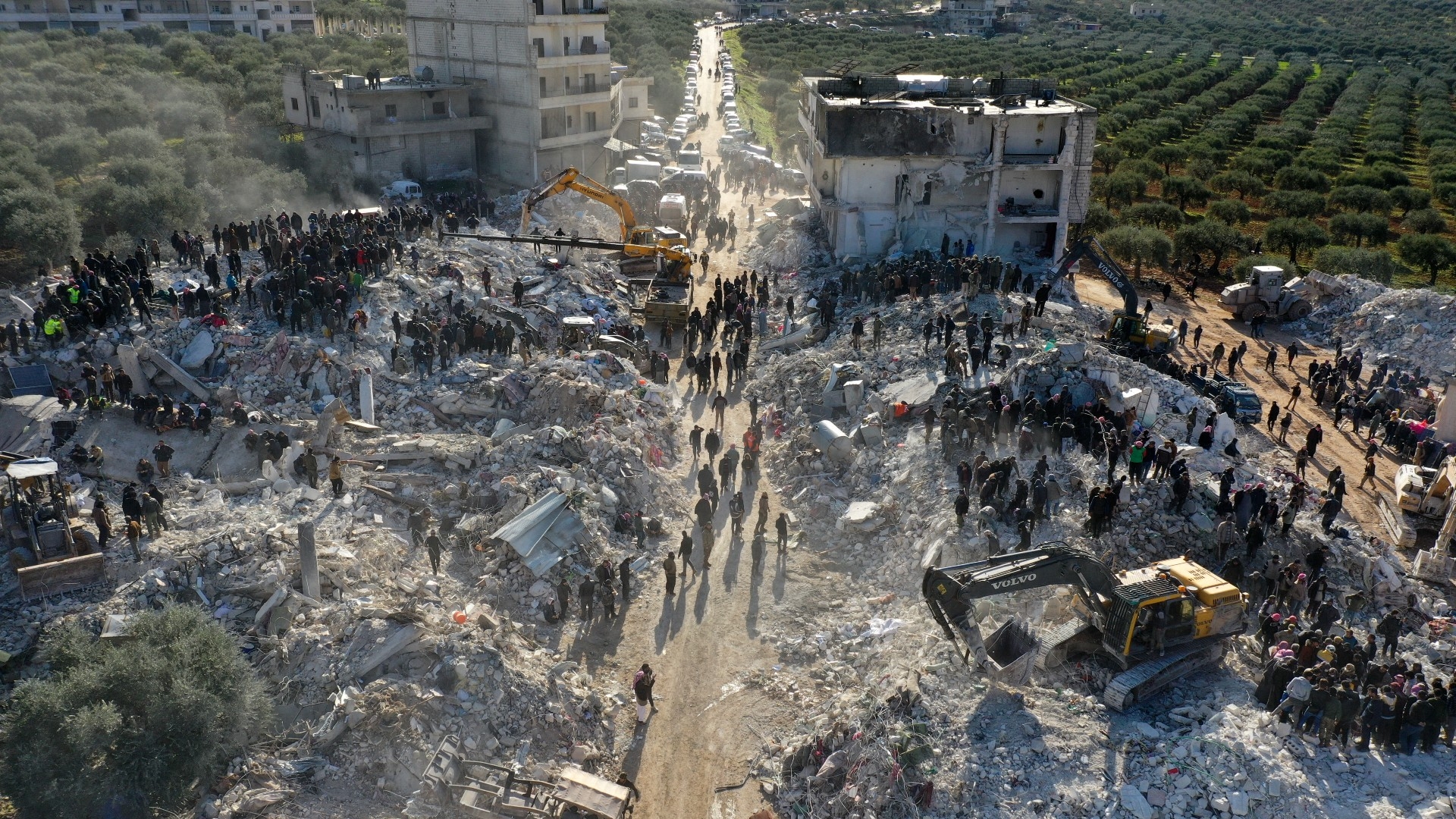
UN aid is not reaching opposition-held territory in northwest Syria due to customs officials at the Turkish border being personally impacted by Monday’s earthquake, officials and humanitarian workers have told MEE.
More than 11,000 people have died after a 7.8-magnitude quake struck the southeastern Turkish city of Gaziantep on Monday morning. A second, 7.5-magnitude earthquake hit Turkey's Kahramanmaras province shortly after.
The death toll was at least 8,579 in Turkey and 2,530 in Syria, as of Wednesday.
Highways in southern Turkey were severely damaged by the quake, including ones leading to Bab al-Hawa, the only international aid corridor from Turkey into Syria.
“One of the main roads that the trucks and trailers use to bring in aid to northwest Syria had been damaged by the earthquake on the Turkish side, making it difficult to bring in new major supplies,” the UN agency for refugees (UNHCR) told MEE in a statement.
New MEE newsletter: Jerusalem Dispatch
Sign up to get the latest insights and analysis on Israel-Palestine, alongside Turkey Unpacked and other MEE newsletters
“Humanitarian agencies are hoping it will be fixed within 48 hours.”
On Tuesday night, Turkish Vice President Fuat Oktay announced that affected highways had been reopened. A senior Turkish official told MEE that Bab al-Hawa was open for emergency aid into northern Syria.
But Syrian opposition officials who run the crossing, which is used by the UN, announced on Wednesday that no humanitarian aid had entered the country since the earthquake.
International aid impacted
Turkish sources familiar with the issue told MEE that the disruption was not politically motivated, and that communication with local and international organisations was ongoing.
They added that the delays were due to officers and guards at the crossing having been personally impacted by the earthquake.
Humanitarian aid workers in Turkey told MEE that customs officials who run the Cilvegozu border gate leading to the opposition-held Idlib province through Bab al-Hawa were among those killed or trapped under the rubble in Hatay province.
Turkish border officials who survived were either taking care of relatives or searching for loved ones, the aid workers added.
Sebahattin Aydin, a senior humanitarian worker at Turkish aid organisation IHH, told MEE that delays were likely to continue for a few more days.
Aydin added that IHH was able to ferry aid through Turkey’s Kilis border gate into Turkish-controlled areas of northern Syria with no issues, as it had been less impacted by the earthquake in comparison to other areas.
UNHCR told MEE that Gaziantep, the epicentre of the earthquake, was the hub for the UN and other agencies that coordinated relief efforts into northwest Syria.
It added that some of those offices, and the homes of its staff, had been destroyed or damaged.
“Some of the areas where the earthquake has hit are remote and hard to reach, so the scope of losses in lives and damages is still to unfold,” it said.
Middle East Eye delivers independent and unrivalled coverage and analysis of the Middle East, North Africa and beyond. To learn more about republishing this content and the associated fees, please fill out this form. More about MEE can be found here.


